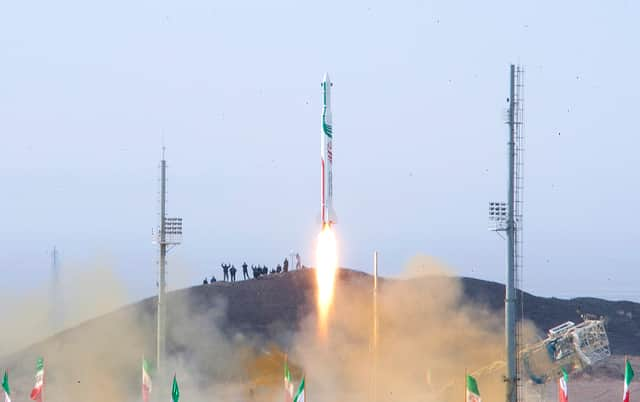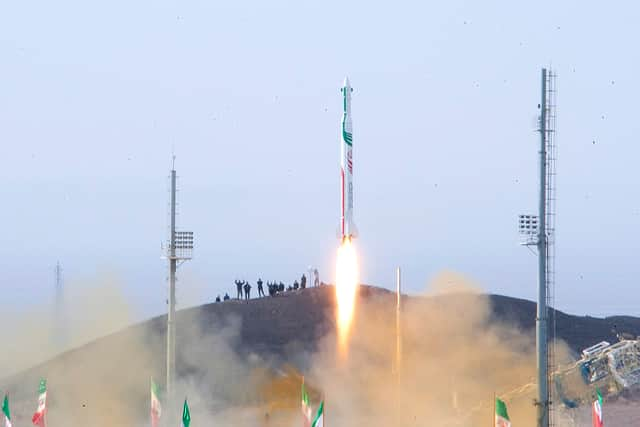Iran conducts satellite launch as the West maintain concerns over ballistic missile capabilities


Iran has reportedly conducted a satellite launch, marking a significant development in its space program, a move that raises concerns in the West regarding potential advancements in Tehran's ballistic missile capabilities.
According to an announcement on Iranian state television, the satellite launch was carried out as part of Iran's Revolutionary Guards' space program. The West, particularly the United States, has expressed apprehension, contending that Iran's satellite launches violate a UN Security Council resolution. The U.S. has urged Tehran to refrain from engaging in any activities related to ballistic missiles capable of delivering nuclear weapons.
Advertisement
Hide AdAdvertisement
Hide AdUN sanctions linked to Iran's ballistic missile program expired in October of the previous year. The 2023 worldwide threat assessment from the U.S. intelligence community emphasized that the development of satellite launch vehicles by Iran could potentially expedite the timeline for the country to develop an intercontinental ballistic missile, given the similar technology involved.
Iran has been actively pursuing its space program for several years. The country has conducted multiple satellite launches as part of its efforts to develop space technology and capabilities.
The West, particularly the United States, has expressed concerns over Iran's satellite launches, fearing that the technology and infrastructure used in these launches could have dual-use applications, including advancements in ballistic missile capabilities. The U.S. and other Western nations have raised objections, contending that such activities could violate international agreements and resolutions related to ballistic missiles.
Iran faced sanctions for its ballistic missile program due to concerns over the dual-use nature of the technology, which could potentially be applied for both civilian and military purposes. These sanctions were influenced by suspicions, particularly from the United States and some Western nations, that Iran's ballistic missile development might contribute to the creation of nuclear-capable missiles.
Advertisement
Hide AdAdvertisement
Hide Ad

United Nations Security Council Resolution 2231, endorsing the Joint Comprehensive Plan of Action in 2015, urged Iran to refrain from activities related to ballistic missiles designed for nuclear weapon delivery. Regional security concerns were also a factor, with the development of long-range missile capabilities raising tensions among neighbouring countries. While UN sanctions related to Iran's ballistic missile program expired in October 2020, certain countries, including the United States, have maintained their own sanctions, emphasizing ongoing apprehensions about Iran's missile activities.
Iran has consistently maintained that its space program is peaceful and aimed at advancing its technological capabilities for scientific and research purposes.
Comment Guidelines
National World encourages reader discussion on our stories. User feedback, insights and back-and-forth exchanges add a rich layer of context to reporting. Please review our Community Guidelines before commenting.
